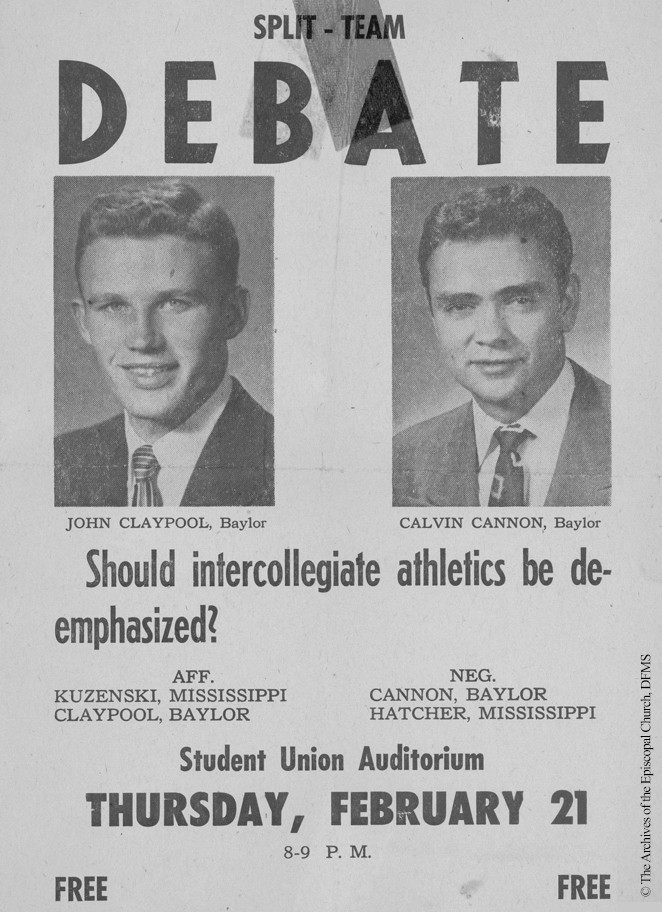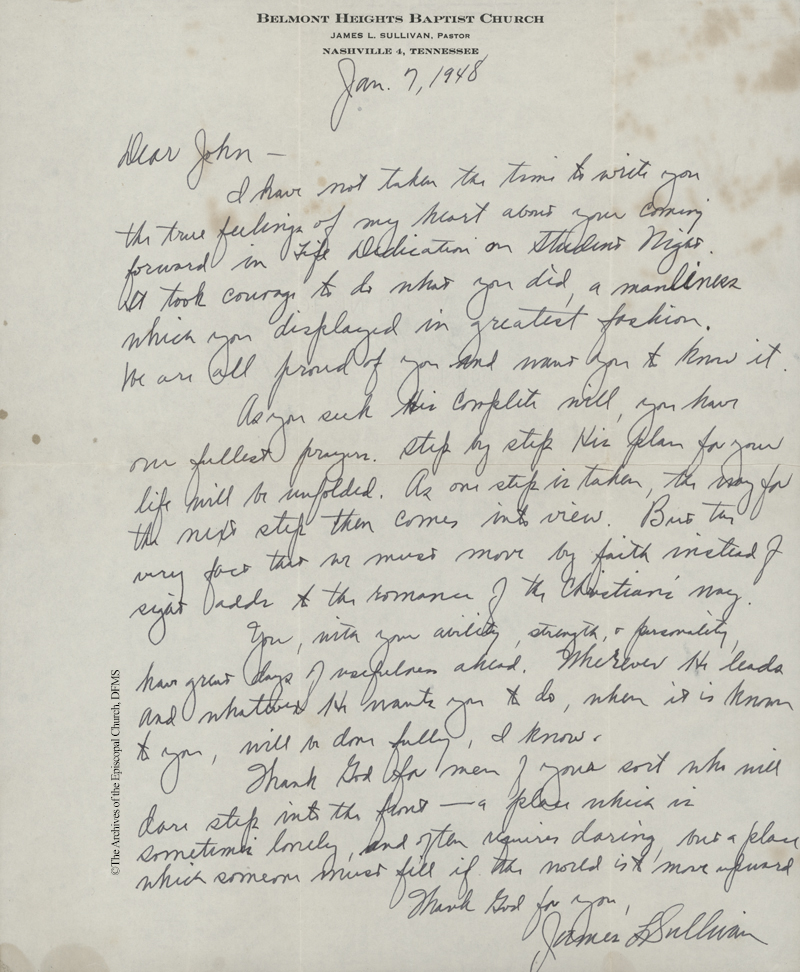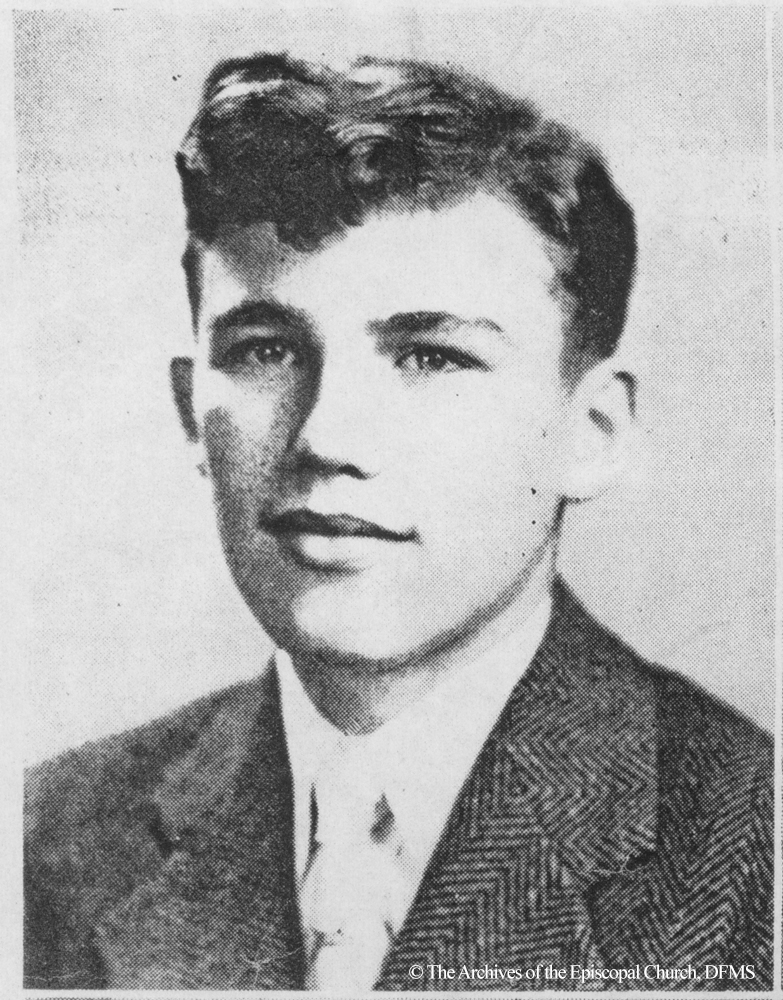The Early Years
John Rowan Claypool IV, a noted theologian, author and speaker, was born on December 15, 1930, in Franklin, Kentucky. Though his family’s roots ran deep in Kentucky, Claypool grew up in Nashville, Tennessee, attending Belmont Heights Baptist Church with his parents, who were very active in the Southern Baptist tradition. Claypool was baptized in this church in 1939 and was called to the ordained ministry in 1953.
In adolescence, Claypool performed diligently as a student, serving as president of his high school student body and graduating with honors. He participated in athletics, especially racquetball, which was a sport he continued to play throughout his adult life. He admitted to a competitive spirit and a pressure to achieve from early childhood, the cost of which was self-doubt even as he became an accomplished man.
In 1948 Claypool graduated from Hillsboro High School in Nashville and began his college work at Mars Hill College in Asheville, North Carolina, earning an A.A. degree in 1950. For the next two years, Claypool studied religion and philosophy at Baylor University in Waco, where he earned his B.A. degree in 1952. While at Baylor, Claypool met his first wife, Lue Ann Foster. They married in 1952 and had two children: a son, John Rowan Claypool, V and a daughter, Laura Lue.
READ
The Challenges of Adolescence, 1977, Northminster Baptist Church, Jackson, MS. Claypool reflects on adolescence.



